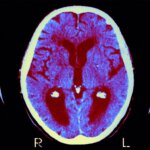While the effects of CBD on mental health remain the subject of vigorous research, more studies are indicating its potential as a therapeutic approach for some brain conditions.
In the Medical College of Georgia at Augusta University, researchers concluded that CBD may decrease Alzheimer’s pathology, improving cognition among adults.
The study appeared in the Journal of Alzheimer’s Disease.
“The proteins TREM2 and IL-33 are important to the ability of the brain’s immune cells to literally consume dead cells and other debris like the beta-amyloid plaque that piles up in patients’ brains, and levels of both are decreased in Alzheimer’s,” the authors of the study stated in a press release.
In the study, researchers revealed that CBD may in fact stabilize levels of a protein known as IL-33, which plays a role in detecting beta-amyloid accumulation.
“They found CBD appears to normalize levels of IL-33, a protein whose highest expression in humans is normally in the brain, where it helps sound the alarm that there is an invader like the beta-amyloid accumulation. There is emerging evidence of its role as a regulatory protein as well, whose function of either turning up or down the immune response depends on the environment. In Alzheimer’s, that includes turning down inflammation and trying to restore balance to the immune system,” the news release reads.
“BD should be at least equally effective in the more common, nonfamilial type Alzheimer’s, which likely have more targets for CBD. They already are looking at its potential in a model of this more common type and moving forward to establish a clinical trial.”


